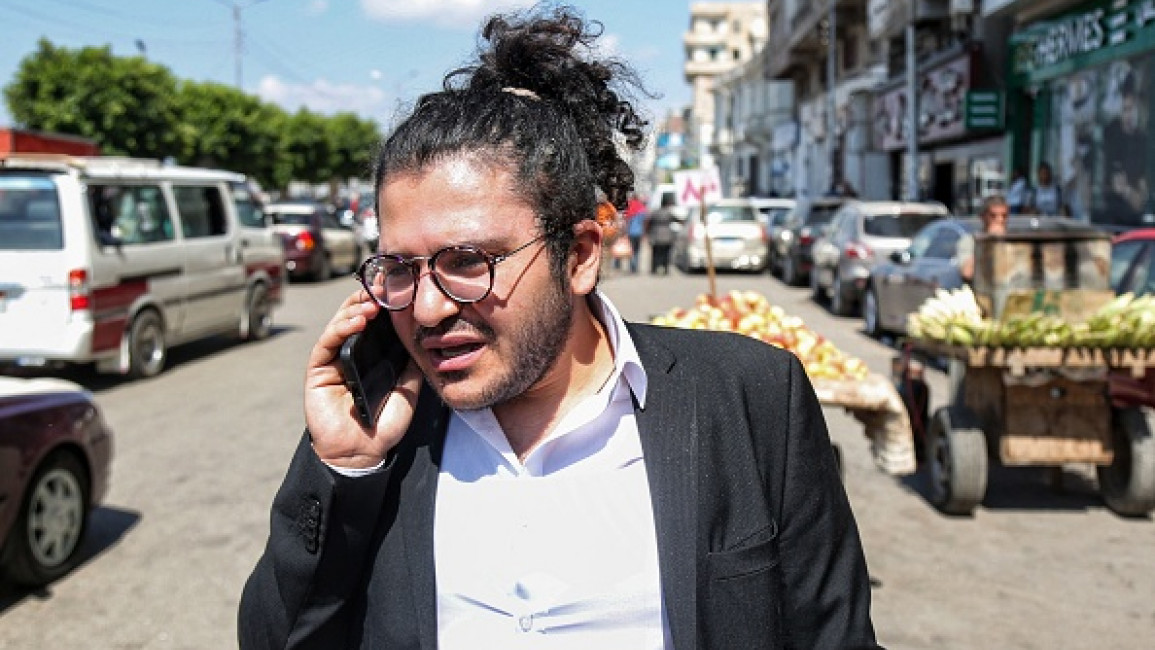Presidential pardon of Egyptian activists seen as 'gesture of goodwill' to hold off dissent
As Egyptian President Abdel-Fattah al-Sisi responded to local and international outcry, pardoning human rights researcher Patrick George Zaki on Wednesday, a day after he had received a final verdict that could not be appealed, experts have viewed the move as "a gesture of goodwill" ahead of the presidential polls due in early 2024.
"The truth is that the judicial system in Egypt is not independent as it should be… the regime controls it," a prominent political sociologist told The New Arab on condition of anonymity.
"Neither is Sisi's regime itself as it depends on foreign influences, having special relations with Italy, basically on arms deals and gas exports," the expert explained.
On Tuesday, an Egyptian emergency state security court found Zaki guilty of "spreading false information" in an article he published on the plight of Coptic Christians in 2019, sentencing him to three years in prison.
Zaki, who worked as a researcher at the local prominent Egyptian Infinitive for Personal Rights (EIPR), was arrested in February 2020 during a visit to Egypt from Italy, where he was doing his master's degree.
"While the verdict against Zaki has been in harmony with the state's policy of controlling activists with an iron fist, Sisi's pardon has tipped the balance to maintain relations with Italy and beautifies the regime's image before the international community," a high-profile political analyst, who declined to be named, told TNA.
The Egypt-Italy ties remained tense in the past years over the horrific demise of Italian graduate student Julio Regini in Cairo back in 2016. While Egypt denied involvement in his murder, Italian investigators believe that Regeni was abducted and tortured to death by Egyptian security officers after being mistaken for a foreign spy.
Zaki was held in pre-trial detention for over a year and a half before his trial kicked off in September 2021; during this time, he was granted Italian citizenship.
Earlier this month, his request before the Egyptian public prosecutor to be allowed to travel to Italy to attend the defence ceremony of his master's thesis at the University of Bologna was ignored. Zaki managed to acquire his degree, though remotely.
Meanwhile, Sisi himself is facing a lot of pressure from the Egyptian public over the brewing economic crisis.
A recent report by UK-based The Economist magazine detailed subsequent failures under his reign, mainly regarding political and economic policies that arguably brought the country to the verge of bankruptcy.
Egypt's annual headline inflation climbed in May to hit 33.7 per cent compared to 15.3 per cent in the same month last year when the Egyptian pound lost nearly half of its value due to the government's controversial economic measures.
"Sisi is believed to have lost a wide base of his popularity, especially among the middle class over the past few years as a result of his controversial political as well as economic measures," argued the political analyst.
Most recently, the Arabic hashtag: "two [presidential] rounds are enough" has gone viral, garnering anti-regime activists. A counter hashtag, believed to be spread by trolls and pro-Sisi Egyptians, whose English translation is: "Sisi will continue with me [till] 2030", turning social media platforms into virtual warfare.
Another high-profile prisoner, also pardoned on Wednesday in the same presidential decree, is human rights lawyer Mohamed El-Baqer, detained in September 2019 as he represented Egypt's most known political activist Alaa Abdel-Fattah at the state security prosecution's office.
The government has so far ignored widespread calls for the release of Abdel-Fattah.
Both men were convicted of "broadcasting fake news," an accusation commonly misused as a tool of repression against regime critics, activists and journalists over the past years.
"Abdel-Fattah was a vocal critic of Sisi and the military institution that controls the country, unlike Zaki, who only spoke about the rights of the Copts. That is why it was quite logical for Sisi to release Zaki and Baqer as a gesture of goodwill…and keep Abdel-Fattah to rot in prison," the political analyst remarked.
About 60,000 political prisoners are estimated to have been behind bars in the North African country, many facing abuse, torture and medical neglect.



